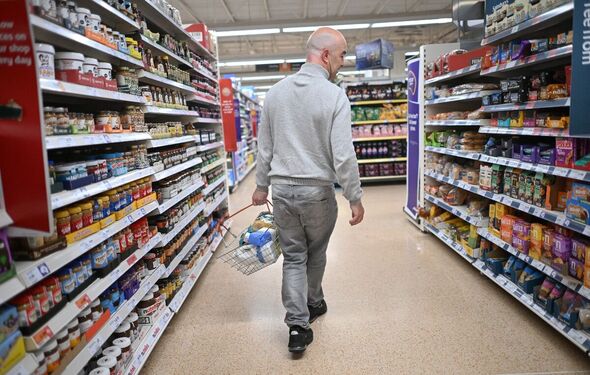
A food prices warning has been issued to anyone buying chocolate, olive oil, butter or lamb.
Experts warn challenges in sourcing goods and in supply chains will continue to push prices up at the shelves this year.
Food and drink, electronics, machinery, chemicals and petroleum products could all be at risk of price hikes.
Possible US tariffs on trade flows, supply disruptions, labour-force issues, inflation and cyber security could all lead prices higher in 2025, with food and drink the most susceptible.
The Chartered Institute of Procurement and Supply (CIPS) has warned household staples could shoot up as the cost of procuring and supplying them could increase up to 20%.
The professional body, which has 64,000 members across 150 countries, said businesses will pass on the cost to the consumer, adding to cost-of-living pressures.
CIPS Chief Executive, Ben Farrell MBE, said: “Going into 2025 what is clear from our research is that there are a number of strategic challenges that are likely to disrupt the smooth flow of goods and services.
“These will present particular challenges for consumers, who are likely to be disproportionately impacted unless these issues are managed effectively.”
As US President-elect Donald Trump has threatened to impose tariffs on goods entering the United States, global supply professionals are planning to reduce the impact of such measures.
Since the US election businesses have been front-loading shipments of goods ahead of any tariff changes from the incoming president. Such measures are expected to help soften the initial price impacts on machinery and electrical products.
A recent CIPS member survey showed machinery, chemicals, computer components and metals could all see increased costs for businesses between 5% and 20% in the months ahead. And that is before any potential tariffs.
Overall food inflation rose 1.8% between November 2023 and November 2024, according to CIPS. Lamb and goat recorded a 10.6% rise, butter rose 7.7% and olive oil prices soared a staggering 26.5%.
Tighter supply, poor harvests, disease, drought in southern Italy and cop failure and climate change led to cooking oil and fats incorporated in many different products rising 9.5% last year, according to CIPS.
A poor cocoa harvest in west Africa due to the weather, cost of pesticides and fertiliser on top of increased global demand saw the price of chocolate to rise 9.8%.
CIPS said the rises it recorded in 2024 highlight the potential risks shoppers could face this year. Such hikes could be made worse if other sectors become affected.
Mr Farrel said supply chain managers will continue to try and diversify their supplier numbers, extend contracts and keep more in stock.
He explained that if the supply of a product is short, the price will inevitably go up, but suggested the coming year may see more “nearshoring” and “friendshoring”, where goods are sourced from allied countries, such as trade bloc members.
The warning comes as food price rises are tipped to soar by an average of 4.2% in the second half of this year as retailers battle £7billion of increased costs from Chancellor Rachel Reeves’ bombshell Budget.
British Retail Consortium Chief Executive Helen Dickinson said modelling by the trade association and industry chiefs showed there was “little hope of prices going anywhere but up”.
This is because retailers face higher National Insurance contributions, a rise in the National Living Wage and new packaging costs.
Tesco Chief Executive Ken Murphy said the company would do its “very best” to keep prices low in the face of a raft of cost increases linked to Ms Reeves’ financial plan.
The supermarket giant, which has more than 300,000 employees, confirmed it was facing a hit of around £250million a year from the increase in National Insurance when the changes roll out in April.
Mr Murphy said: “What I won’t say is there will be no inflation, but we’ll do out very best to minimise the impact.”


















